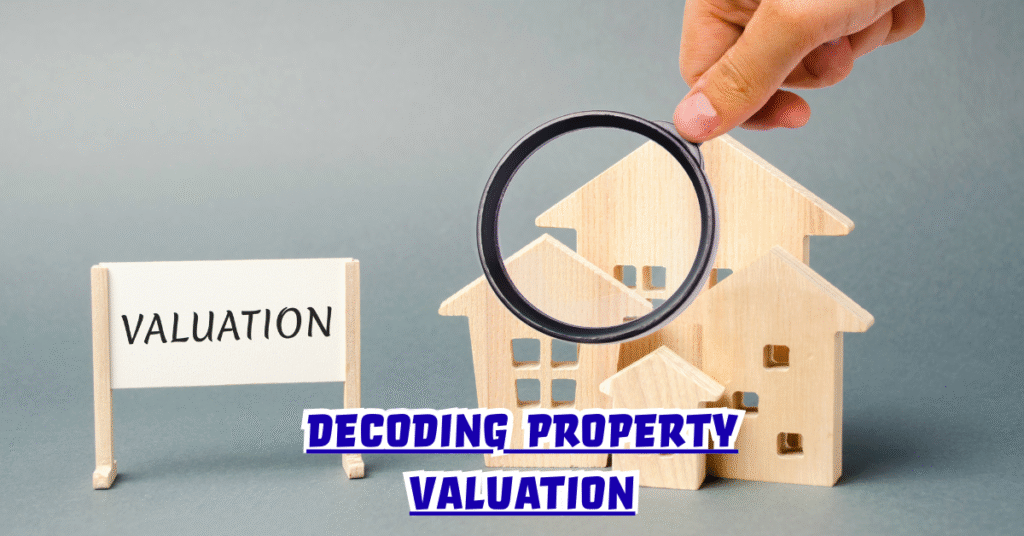Understanding how property values are assessed, recorded, and applied to taxes is central to any homeowner, investor, or businessperson navigating real estate in Hernando County, Florida. The Hernando County Property Appraiser’s office is the key agency responsible for determining property values, maintaining records, and ensuring fairness in taxation. Within the first hundred words, the role becomes clear: this office does not set tax rates but establishes the property’s market value, which then directly influences how much owners will pay in annual taxes. In essence, the Hernando County Property Appraiser connects the real estate market with taxation policy, balancing government revenue needs with taxpayer rights.
This article aims to provide a comprehensive, 3,000-word guide on the subject. We will explore the history of the office, how assessments are conducted, the tools available for property searches, exemptions that homeowners can apply for, and the implications for real estate investors. We will also examine recent developments in property appraisals, the role of technology, and how citizens can best navigate the system. By the end, readers should have an expert-level understanding of the Hernando County Property Appraiser and how its operations affect day-to-day property ownership in the region.
The Role of the Hernando County Property Appraiser
The Property Appraiser’s role is to provide fair and equitable assessments of all real estate in Hernando County. These assessments are crucial because they ensure that taxes are distributed fairly across homeowners, landowners, and businesses. While the office evaluates property values, it is essential to clarify that the Property Appraiser does not determine tax rates. Instead, county commissions, municipalities, and special districts set millage rates, which are then applied to the appraised value of properties.
A primary responsibility of the office is to maintain up-to-date property records. This includes documenting ownership transfers, property boundaries, and improvements such as renovations or new construction. By keeping detailed and accurate information, the appraiser ensures that the assessed value of a property reflects its true market condition.
The Property Appraiser also serves as a point of contact for residents seeking exemptions. These include the Homestead Exemption, which provides significant savings for primary homeowners, as well as exemptions for seniors, veterans, and individuals with disabilities. Through these roles, the office directly impacts both community trust and financial well-being.
Historical Background of Property Appraisal in Hernando County
Property appraisal in Hernando County has evolved in response to population growth, real estate expansion, and economic development. Decades ago, property assessments were largely manual, relying on physical inspections and community knowledge. With time, technological advancements introduced Geographic Information Systems (GIS), digital mapping, and automated valuation models, enabling faster and more accurate assessments.
The Property Appraiser’s office has also had to adapt to Florida’s changing legislative landscape. For instance, the Save Our Homes Amendment, passed in 1992, capped annual increases in the assessed value of homesteaded property, significantly altering appraisal practices. This legislation was designed to protect long-term homeowners from sudden spikes in property taxes during periods of rapid real estate appreciation.
Today, the office stands as a blend of historical practice and modern innovation, combining on-the-ground property inspections with sophisticated software systems that compare sales, neighborhood data, and property features.
How Property Valuations Are Conducted
The Hernando County Property Appraiser uses multiple approaches to determine property values fairly. These include:
- Sales Comparison Approach – This compares the property to recent sales of similar properties in the same area. It is the most widely used method for residential property valuation.
- Cost Approach – This considers what it would cost to replace or reproduce the property, subtracting depreciation while adding land value. It is commonly applied to special-purpose properties like schools or churches.
- Income Approach – This is applied to income-generating properties such as apartment buildings, using projected rental income to estimate value.
The office regularly reviews property data and conducts physical inspections to verify the accuracy of records. Properties are reassessed annually, ensuring values align with market trends.
Key Services Offered by the Hernando County Property Appraiser
The office provides several services beyond valuations, making it an essential hub for residents and investors. These include:
- Property Search Tools – Online databases allow users to look up ownership details, maps, and assessed values.
- GIS Mapping – Geographic Information Systems present visual property boundaries, flood zones, and land use categories.
- Exemption Applications – Online and in-office resources guide homeowners through applying for tax-saving exemptions.
- Tangible Personal Property Appraisals – Businesses can find resources for assessing equipment and machinery values.
- Public Records Access – Residents may request deeds, plats, or historical property data.
Table: Common Exemptions Offered by the Hernando County Property Appraiser
| Exemption | Eligibility | Benefit |
|---|---|---|
| Homestead Exemption | Primary residence homeowners | Up to $50,000 reduction in assessed value |
| Senior Exemption | Seniors (65+) with limited income | Additional property tax reductions |
| Veterans Exemption | Disabled veterans or surviving spouses | Partial or full property tax relief |
| Disability Exemption | Individuals with qualifying permanent disabilities | Reduction in taxable value |
| Widow/Widower Exemption | Widows and widowers meeting criteria | $500 reduction in assessed value |
Technology and Modernization in Property Appraisals
The Hernando County Property Appraiser has increasingly relied on technology to streamline services and improve accuracy. Digital property records are now standard, allowing users to access detailed property information online without visiting the office. GIS systems provide interactive maps with layers showing zoning, land use, and environmental data.
The integration of aerial photography and drones has enhanced the accuracy of inspections. These tools reduce the need for constant on-site visits and help appraisers detect new construction or additions. Additionally, property owners benefit from online portals where they can file exemption applications, submit documents, or appeal valuations.
Such modernization has increased transparency and efficiency, fostering trust between the appraiser’s office and the public.
How Property Taxes Are Calculated
While the appraiser establishes property values, the actual property tax bill involves multiple steps. First, local taxing authorities set millage rates, representing the amount per $1,000 of assessed value. The property appraiser’s valuation is then multiplied by this rate, with exemptions subtracted before the final bill is issued.
For example, a home assessed at $200,000 with a Homestead Exemption of $50,000 would be taxed on $150,000 of value. If the millage rate is 10 mills (or $10 per $1,000), the property tax would amount to $1,500.
Table: Property Tax Calculation Example
| Home Value | Exemption Applied | Taxable Value | Millage Rate | Annual Property Tax |
|---|---|---|---|---|
| $200,000 | $50,000 | $150,000 | 10 mills | $1,500 |
| $300,000 | $50,000 | $250,000 | 10 mills | $2,500 |
| $400,000 | $50,000 | $350,000 | 10 mills | $3,500 |
Appeals and Challenges to Property Valuations
If a property owner believes their property has been overvalued, they have the right to appeal. The process typically begins with an informal review, where the homeowner provides evidence such as comparable sales or an independent appraisal. If unresolved, the case may proceed to the county’s Value Adjustment Board, where a more formal hearing takes place.
This system ensures accountability and fairness, giving property owners confidence that their concerns can be addressed.
Importance for Homeowners and Real Estate Investors
For homeowners, understanding the role of the Property Appraiser ensures they are not overpaying in property taxes and are maximizing available exemptions. For investors, accurate valuations help them assess market trends, predict expenses, and make informed decisions about property acquisitions.
The Property Appraiser’s office acts as a bridge between the real estate market and public policy, making it a cornerstone for financial planning in the county.
Frequently Asked Questions (FAQs)
1. Does the Hernando County Property Appraiser set my property tax rate?
No, the office only determines property values. Tax rates are set by local taxing authorities.
2. How often are property values reassessed?
Values are reassessed annually to reflect changes in the real estate market and physical improvements to properties.
3. Can I apply for exemptions online?
Yes, the office provides online applications for exemptions such as Homestead, Veterans, and Senior Exemptions.
4. What happens if I disagree with my property’s assessed value?
You may file an informal appeal with the office or pursue a formal hearing with the Value Adjustment Board.
5. Does the Property Appraiser also assess personal property?
Yes, tangible personal property, such as business equipment and machinery, is assessed in addition to real estate.
Conclusion
The Hernando County Property Appraiser’s office is far more than a valuation hub—it is a vital institution connecting property ownership with taxation policy, homeowner relief, and transparent governance. By maintaining accurate property records, offering exemptions, and providing advanced digital tools, the office ensures fair taxation while empowering residents with accessible information.
For homeowners, understanding the process means maximizing exemptions and protecting their finances. For investors, it means making informed decisions based on accurate data. For the broader community, the appraiser’s work ensures fairness, balance, and accountability in funding essential public services.
In Hernando County, property ownership is more than just land and buildings—it is a partnership between residents and local government, mediated through the careful, systematic work of the Property Appraiser’s office.







